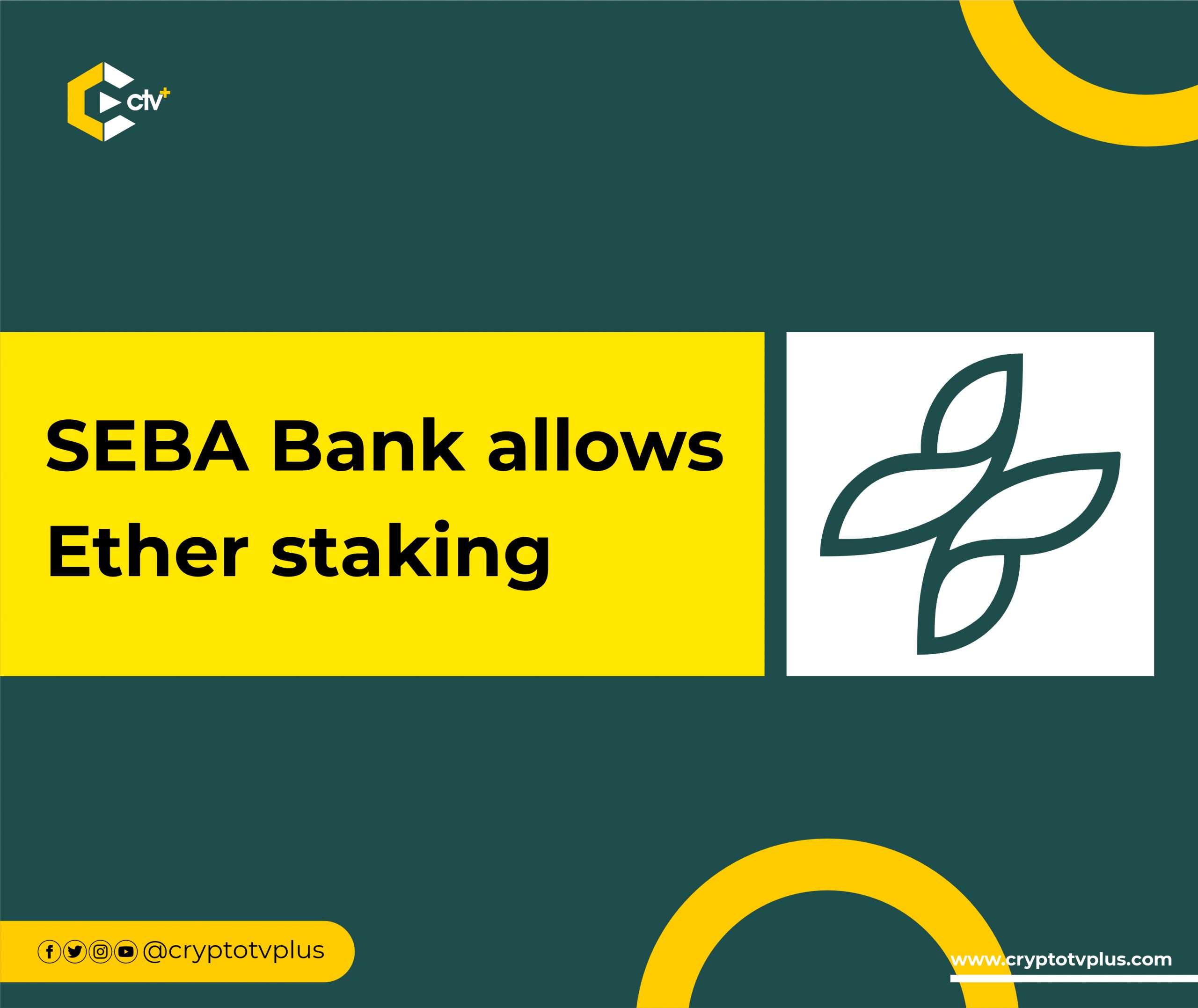News
SEBA Bank allows Ether staking

Swiss crypto bank, SEBA, has launched Ethereum staking services for its users amidst the Merge. The move will give more customers and investors of SEBA an opportunity to be part of the crypto market.
Several institutions have shown interest in a wider range of DeFi digital assets, says the report. And here’s a project in response to that demand.
Staking on the Ethereum blockchain provides stakers with a monthly reward. This is to compensate for their staking effort towards a secured network of over 400,000 validators, staking 13.5 million ETH.
Ethereum staking services enable clients to earn rewards in a flexible and accessible manner. These rewards are sent monthly and have adjustable lock-up periods. There is also a cost-effective fee structure applied to guarantee asset security for each participant.
SEBA Bank has shown resilience in growing into the crypto market. In Q1 2022, they raised $111 million in Series C funding that was led by various blockchain firms including FTX.
Read this also:
Sygnum, A Swiss Bank become the first bank to offer Ethereum 2.0 Staking to Clients
Valour, a Switzerland Headquartered Firm Releases A Pro Bono Swiss Bitcoin ETP
The Merge, a milestone for Ethereum blockchain
Speaking about the service and the expected “the Merge event”, Mathias Schütz, Head of Technology & Client Solutions of SEBA Bank said that the Ethereum merge will be a milestone for the world’s second-largest largest blockchain network.
The staking service launched by the bank will bring in institutional investors. This will boost the security of the network through “a trusted, secure and fully regulated counterparty”, he explained.
The Merge will bring about the transition of the Ethereum blockchain from a Proof of Work protocol to a Proof of Stake protocol. More than a 90% energy cut will be implemented in this process, making the blockchain more sustainable.
Apart from Ethereum staking, SEBA Bank has other staking services for its clients. This includes PoS platforms like Polkadot and Tezos. The Swiss bank promises to add more networks in the future.

























Pingback: SEBA Bank allows Ether staking by Chuks Nnabuenyi Jr – CryptoTvplus Events: NFT, DeFi, Bitcoin, Ethereum, Altcoin Events
Pingback: DeFi Insight | How The Ethereum Merge May Impact the Crypto Ecosystem – Crypto Bullish Bears
Pingback: DeFi Insight | How The Ethereum Merge May Impact the Crypto Ecosystem | by AlphaPro | Coinmonks | Sep, 2022 - Rvpg media